
Caldas da Rainha: The Healing Waters of Portugal
Caldas da Rainha, a charming city in the heart of Portugal, is renowned for its unique blend of historical allure and natural beauty. Founded in the 15th century by Queen Leonor, it is famous for its healing thermal waters. The queen herself discovered these waters and established the oldest thermal hospital in the world. Today, visitors can still enjoy the relaxing and therapeutic benefits of the city's hot springs. Stroll through the picturesque streets lined with traditional Portuguese architecture and vibrant ceramic shops. The city's ceramics are a testament to its rich artistic heritage, with whimsical and colorful designs that captivate the eye. Don't miss the daily open-air market at Praça da Fruta, where you can sample fresh local produce and artisanal goods, giving you a taste of the region's culinary delights. Caldas da Rainha is also home to beautiful parks and gardens, such as the lush Parque Dom Carlos I. This tranquil oasis offers serene walking paths, a boating lake, and even an art museum housed in a stunning 19th-century palace. For those seeking a cultural experience, the city's museums and galleries, including the José Malhoa Museum, showcase a diverse range of Portuguese art and history. Whether you're here for the healing waters, the art, or simply to relax and enjoy the local charm, Caldas da Rainha promises a memorable visit.
Local tips in Caldas da Rainha
- Visit the thermal hospital for a unique spa experience.
- Explore the daily market at Praça da Fruta for fresh produce and local crafts.
- Take a leisurely walk through Parque Dom Carlos I.
- Visit the José Malhoa Museum to learn about Portuguese art.
- Sample local pastries like the famous cavacas and trouxas de ovos.
Caldas da Rainha: The Healing Waters of Portugal
Caldas da Rainha, a charming city in the heart of Portugal, is renowned for its unique blend of historical allure and natural beauty. Founded in the 15th century by Queen Leonor, it is famous for its healing thermal waters. The queen herself discovered these waters and established the oldest thermal hospital in the world. Today, visitors can still enjoy the relaxing and therapeutic benefits of the city's hot springs. Stroll through the picturesque streets lined with traditional Portuguese architecture and vibrant ceramic shops. The city's ceramics are a testament to its rich artistic heritage, with whimsical and colorful designs that captivate the eye. Don't miss the daily open-air market at Praça da Fruta, where you can sample fresh local produce and artisanal goods, giving you a taste of the region's culinary delights. Caldas da Rainha is also home to beautiful parks and gardens, such as the lush Parque Dom Carlos I. This tranquil oasis offers serene walking paths, a boating lake, and even an art museum housed in a stunning 19th-century palace. For those seeking a cultural experience, the city's museums and galleries, including the José Malhoa Museum, showcase a diverse range of Portuguese art and history. Whether you're here for the healing waters, the art, or simply to relax and enjoy the local charm, Caldas da Rainha promises a memorable visit.
When is the best time to go to Caldas da Rainha?
Iconic landmarks you can’t miss
Parque Dom Carlos I
Explore the serene beauty and historical charm of Parque Dom Carlos I in Caldas da Rainha, a perfect getaway for nature lovers and history enthusiasts alike.
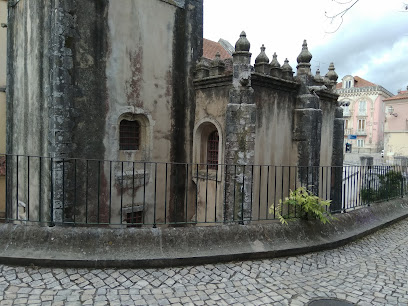
Praça da Fruta das Caldas da Rainha
Discover the vibrant charm of Praça da Fruta, Caldas da Rainha - a local market brimming with fresh produce and artisanal delights.
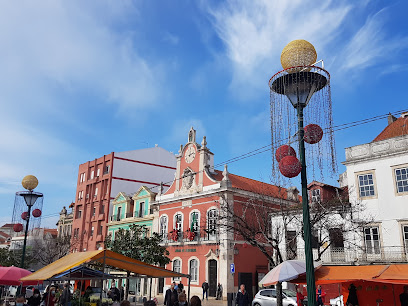
Santana Market
Experience the vibrant flavors and rich culture of Caldas da Rainha at Santana Market, a lively fairground brimming with local delights and artisanal treasures.
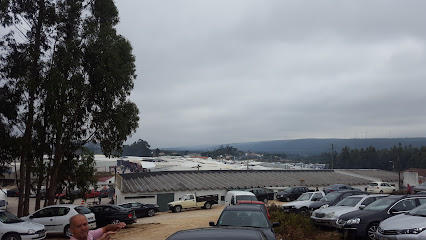
Mata Dona Leonor
Explore the serene beauty of Mata Dona Leonor, a tranquil park in Caldas da Rainha, perfect for relaxation and family outings amidst nature.
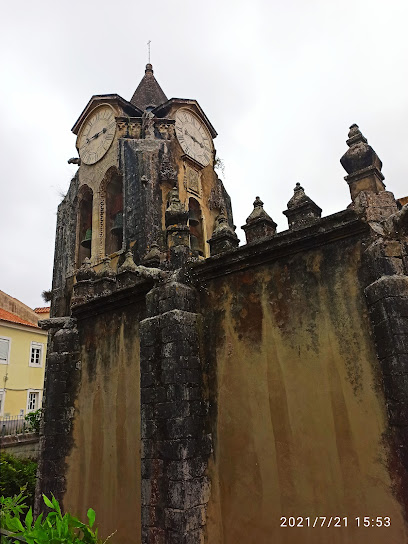
Museu da Cerâmica
Explore the rich heritage of ceramic art at Museu da Cerâmica, a must-visit cultural gem in Caldas da Rainha, Portugal.
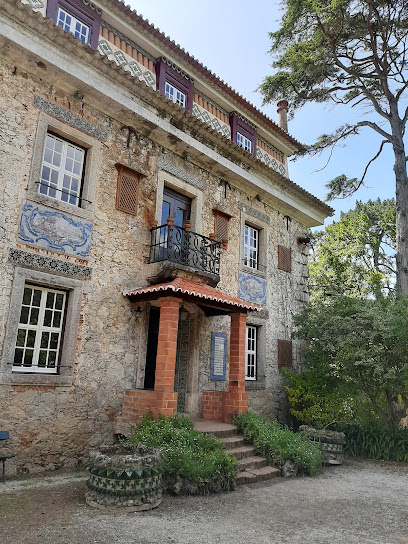
Capela de Santa Ana
Explore Capela de Santa Ana, a historical Catholic church in Salir do Porto that offers breathtaking views and a glimpse into Portugal's rich heritage.
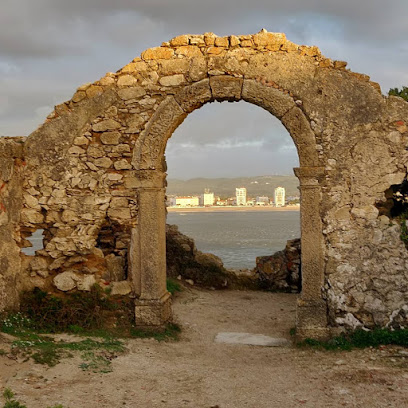
Museu de José Malhoa
Explore the Museu de José Malhoa in Caldas da Rainha, a captivating journey through Portuguese art and culture in a serene park setting.
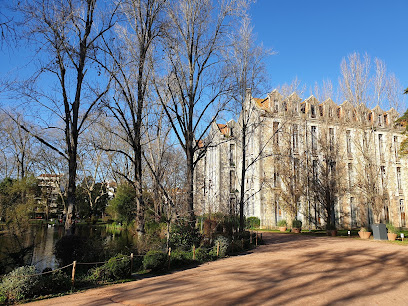
Rotunda da Rainha Dona Leonor
Discover the Rotunda da Rainha Dona Leonor in Caldas da Rainha, a stunning historical landmark celebrating Portugal's rich cultural heritage and architectural beauty.
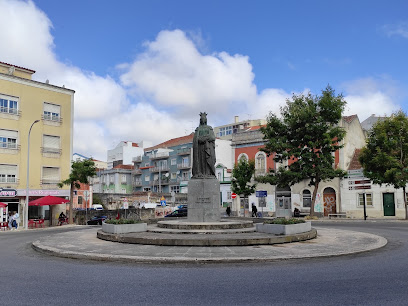
Chafariz das Cinco Bicas
Explore Chafariz das Cinco Bicas, a historic fountain in Caldas da Rainha, where artistic heritage meets tranquil beauty in Portugal.
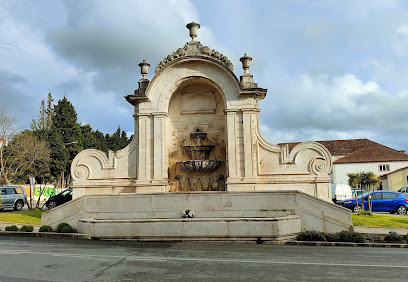
Igreja de Nossa Senhora do Pópulo
Explore the breathtaking Igreja de Nossa Senhora do Pópulo, a stunning Catholic church in Caldas da Rainha, rich in history and architectural beauty.
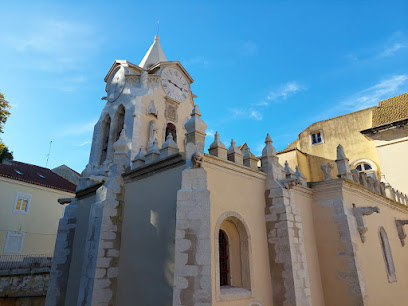
Hospital Termal Rainha D. Leonor
Discover healing and tranquility at Hospital Termal Rainha D. Leonor, a historic spa in Caldas da Rainha known for its rejuvenating thermal waters.
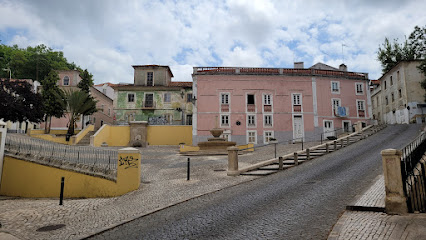
Museu do Ciclismo
Discover the Museu do Ciclismo in Caldas da Rainha, a captivating museum celebrating the rich history and culture of cycling.
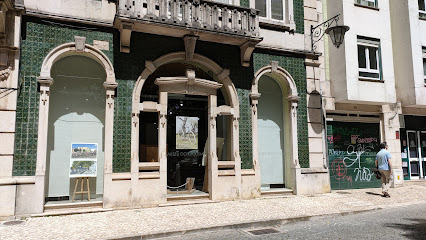
Centro de Artes
Explore Centro de Artes in Caldas da Rainha, a cultural haven showcasing local and international art, performances, and engaging community events.
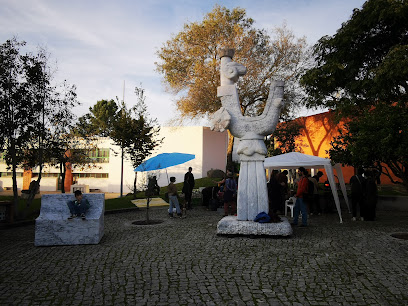
Praça de Touros | Caldas da Rainha
Explore the Praça de Touros in Caldas da Rainha, a captivating bullring blending tradition and modern festivities in the heart of Portugal.
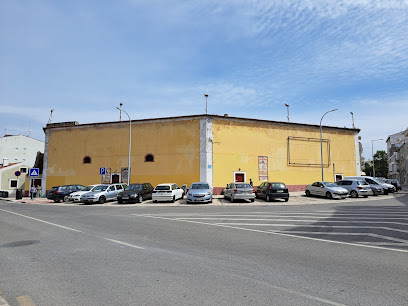
Arco Da Memoria
Explore Arco Da Memoria in Vidais - a stunning historical arch that embodies the rich heritage and charm of Portugal's scenic landscapes.
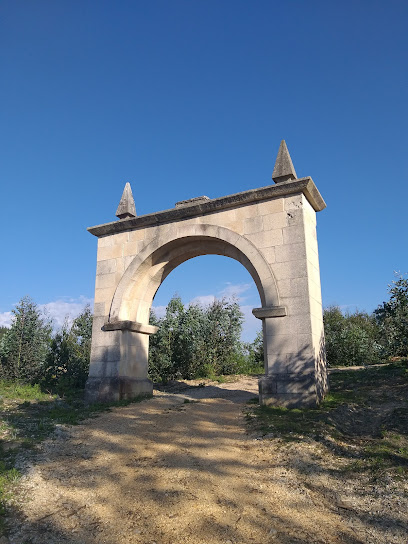
Unmissable attractions to see
Sanctuary of Our Lady of Fátima
Discover the profound spirituality and breathtaking architecture of the Sanctuary of Our Lady of Fátima, a must-visit pilgrimage site in Portugal.
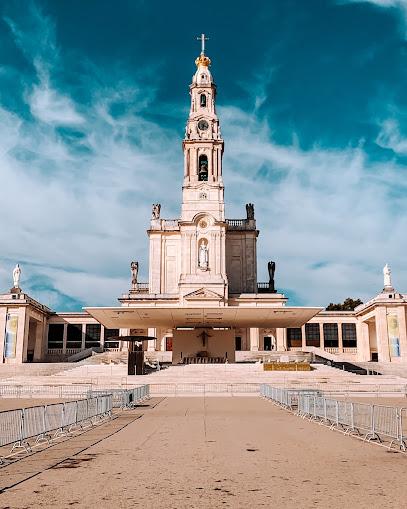
Castelo de Óbidos
Explore the stunning Castelo de Óbidos, a medieval fortress surrounded by charming streets and rich Portuguese history in the heart of Óbidos.
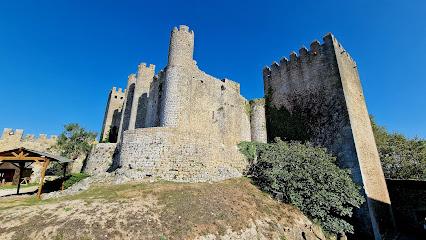
Praia da Nazaré
Experience the breathtaking beauty of Praia da Nazaré, a world-renowned beach known for its massive waves and vibrant culture.
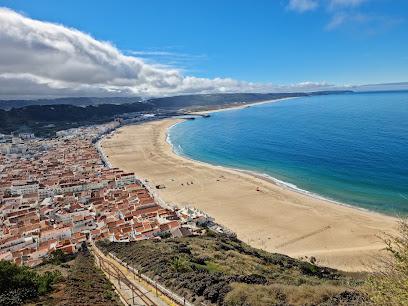
Buddha Eden
Explore the serene landscapes of Buddha Eden, a unique garden and art museum that offers a peaceful retreat in the heart of Portugal.
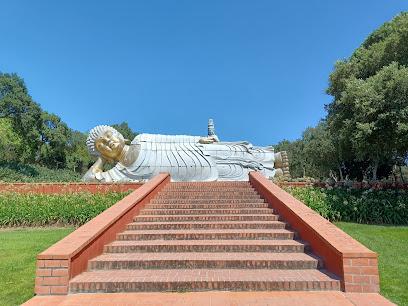
Batalha Monastery
Explore the breathtaking Batalha Monastery, a stunning Gothic monument and UNESCO World Heritage Site, rich in history and architectural grandeur.
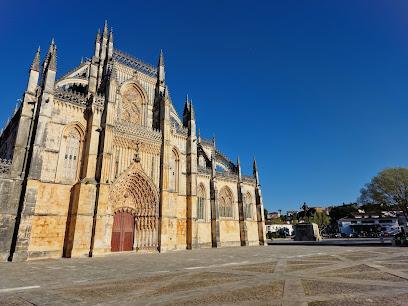
Miradouro do Suberco
Experience the stunning views from Miradouro do Suberco in Nazaré, a perfect blend of nature's beauty and local culture.
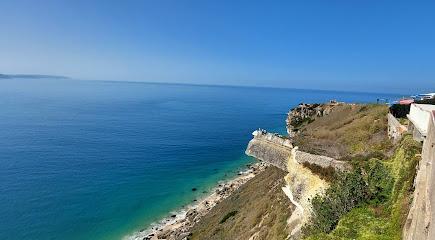
Basilica of the Most Holy Trinity
Experience the spiritual grandeur of the Basilica of the Most Holy Trinity in Fátima, a modern pilgrimage site rich in faith and breathtaking architecture.
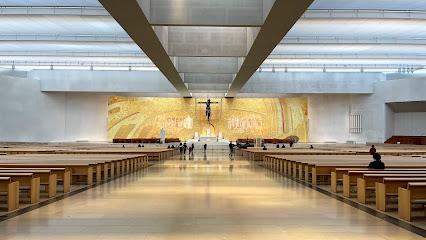
Lourinhã Dino Park
Discover the captivating world of dinosaurs at Lourinhã Dino Park, an exciting theme park blending education and adventure in beautiful Portugal.
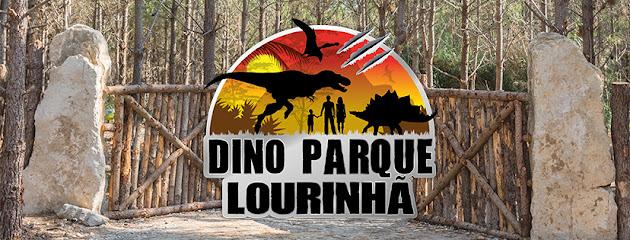
Monastery of Alcobaça
Explore the architectural wonder of the Monastery of Alcobaça, a UNESCO World Heritage site rich in history, romance, and cultural significance in Portugal.
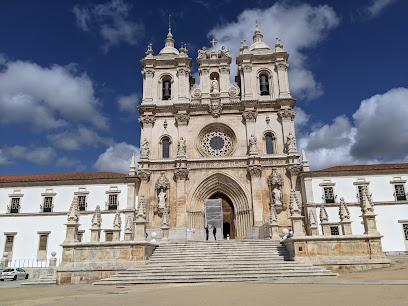
Basilica of Our Lady of the Rosary of Fatima
Explore the breathtaking Basilica of Our Lady of the Rosary of Fatima, a spiritual haven rich in history and architectural beauty.
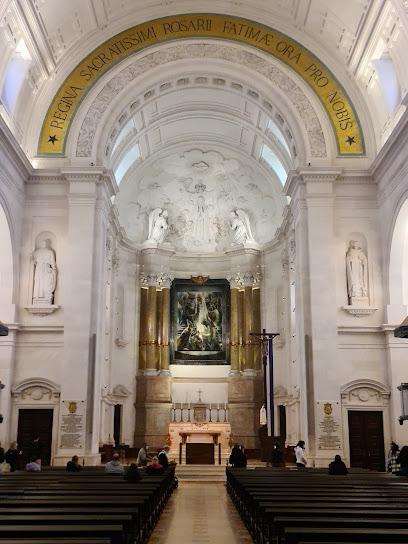
Farol da Nazaré
Discover the breathtaking views and rich maritime history at Nazaré Lighthouse, an iconic attraction perched on Portugal's stunning coastline.
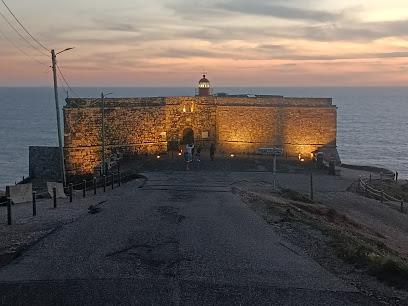
Mira de Aire Cave
Discover the mesmerizing beauty of Mira de Aire Cave, a stunning underground wonder in Portugal's natural landscape.
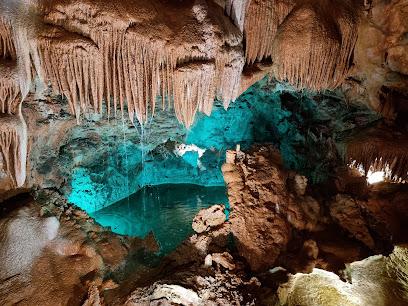
Salinas de Rio Maior
Explore the stunning Salinas de Rio Maior, a unique tourist attraction in Portugal known for its captivating salt pans and rich cultural heritage.
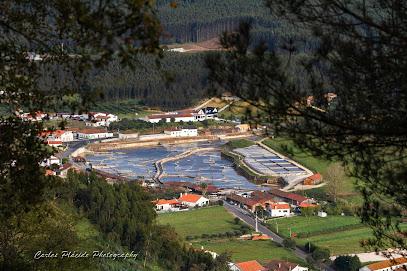
Parque Dom Carlos I
Explore the serene beauty of Parque Dom Carlos I in Caldas da Rainha, a lush park perfect for relaxation, culture, and family fun.
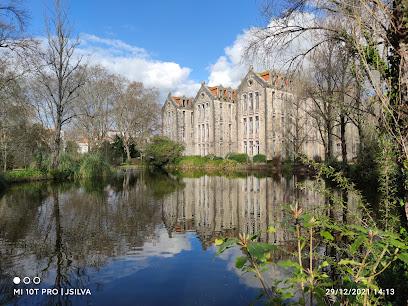
Forte de São Miguel Arcanjo
Experience the breathtaking views and rich history at Forte de São Miguel Arcanjo in Nazaré, a captivating fortress by the Atlantic.
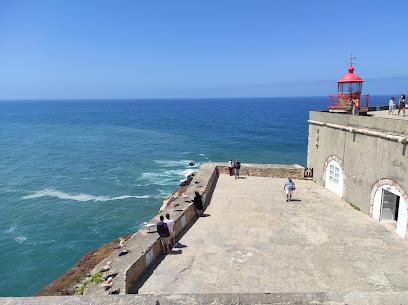
Essential places to dine
Solar dos Amigos
Discover authentic Portuguese flavors at Solar dos Amigos in Caldas da Rainha – a must-visit culinary destination for every traveler.
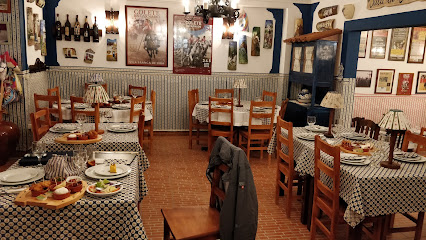
Maratona Café Restaurante
Discover Maratona Café Restaurante in Caldas da Rainha: Where Traditional Portuguese Flavors Meet Cozy Café Charm.
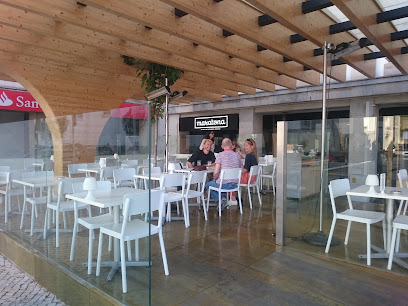
Restaurante O Cortiço
Discover authentic Portuguese cuisine at Restaurante O Cortiço in Caldas da Rainha - where tradition meets flavor.
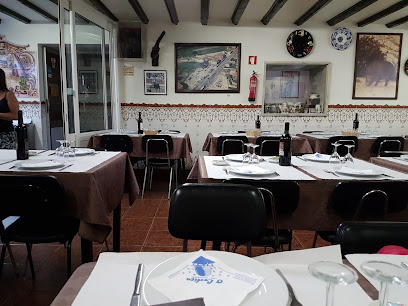
Restaurante Paraíso do Coto
Experience authentic Portuguese cuisine at Restaurante Paraíso do Coto in Caldas da Rainha - great flavors at affordable prices.
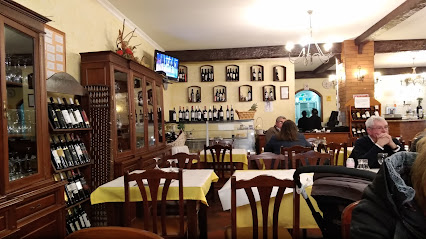
Restaurante Adega do Albertino
Experience authentic Portuguese cuisine at Restaurante Adega do Albertino in Caldas da Rainha – where tradition meets flavor.
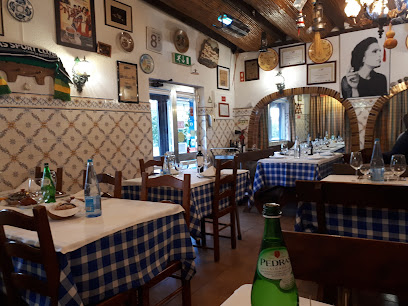
Restaurante Casa Antero
Experience the best of Portuguese cuisine at Restaurante Casa Antero in Caldas da Rainha - where tradition meets taste.
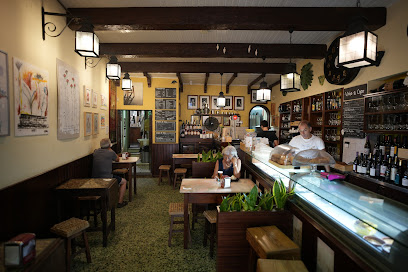
A Casa do Bingre
Discover gourmet burgers at A Casa do Bingre in Caldas da Rainha – where quality meets creativity in every bite.
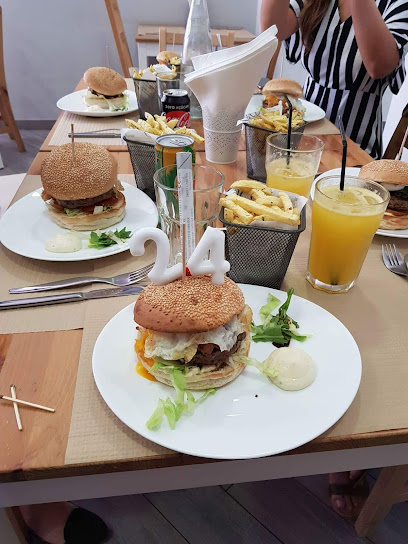
Restaurante Sabores d'Itália
Discover authentic Italian flavors at Restaurante Sabores d'Itália in Caldas da Rainha – where every dish tells a story.
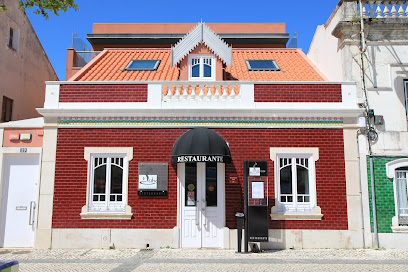
Restaurante Delhi Darbar
Experience authentic Indian cuisine at Restaurante Delhi Darbar in Caldas da Rainha – a culinary gem serving delightful flavors and exceptional service.
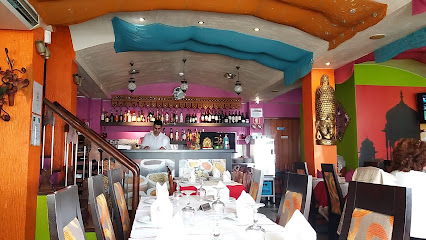
Recanto
Discover the authentic taste of Portugal at Recanto, where fresh ingredients meet traditional recipes in a cozy setting.
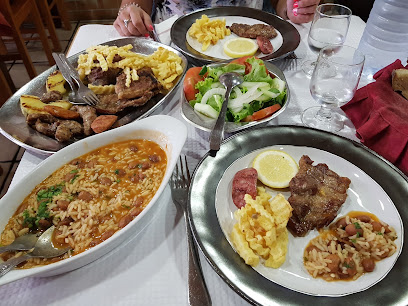
Restaurante A Capelinha do Monte
Experience authentic Portuguese cuisine in Caldas da Rainha at Restaurante A Capelinha do Monte—where tradition meets flavor.
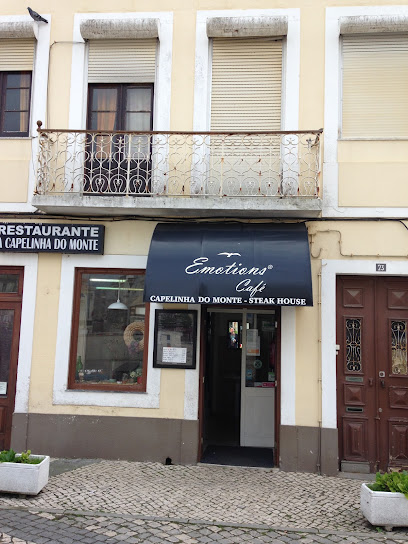
Restaurante Flavours of India
Experience authentic Indian cuisine at Restaurante Flavours of India in Caldas da Rainha – where every dish tells a story.
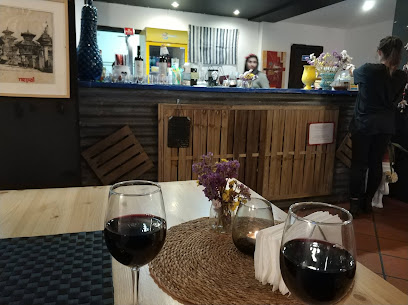
Ti'Ascenção
Experience authentic Portuguese cuisine at Ti'Ascenção in Caldas da Rainha - where tradition meets modern taste.
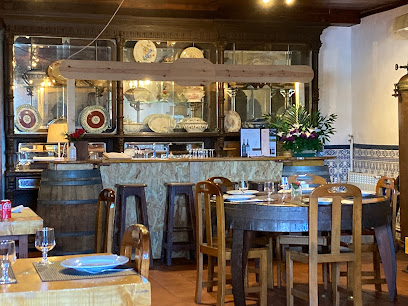
Taskinha Do B3co
Experience authentic Portuguese tapas at Taskinha Do B3co in Caldas da Rainha – where every dish tells a story.
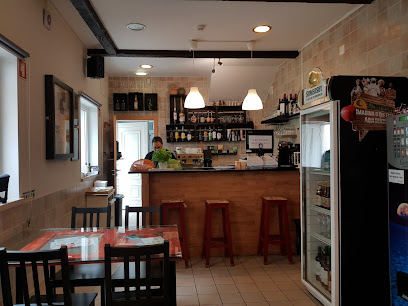
PANEÒLIO Pizza Bar
Experience authentic Italian pizza at PANEÒLIO Pizza Bar in Caldas da Rainha—where tradition meets flavor in every slice.
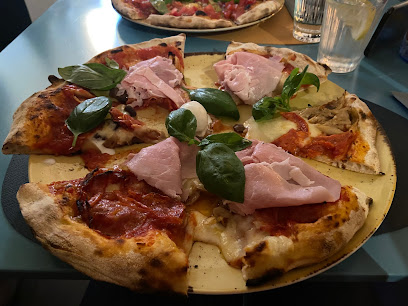
Markets, malls and hidden boutiques
La Vie Caldas da Rainha
Explore La Vie Caldas da Rainha, a vibrant shopping mall offering diverse stores, delightful dining, and entertainment in the heart of Portugal.
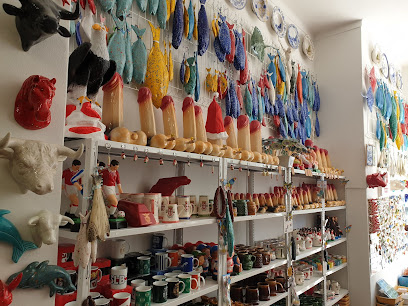
Sportino Caldas da Rainha
Explore Sportino Caldas da Rainha for stylish shoes and clothing that reflect the heart of Portuguese fashion in a charming town.
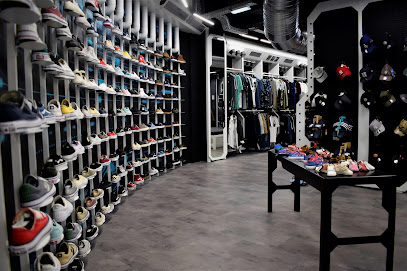
MANGO | Caldas da Rainha
Shop stylish and affordable clothing at MANGO in Caldas da Rainha, where modern fashion meets Portuguese charm in a delightful shopping experience.
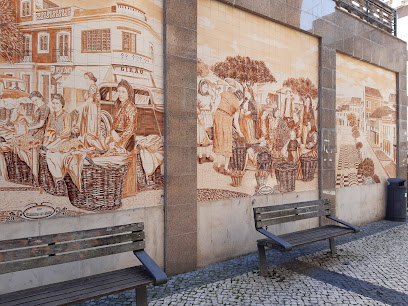
MEO
Experience seamless connectivity at MEO, Caldas da Rainha's premier telecommunications provider, offering a wide range of electronics and services.
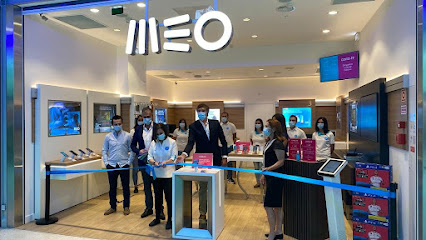
Caldas Retail Park
Experience the best of shopping and dining at Caldas Retail Park in the heart of Caldas da Rainha, where every visit is filled with fun and excitement.
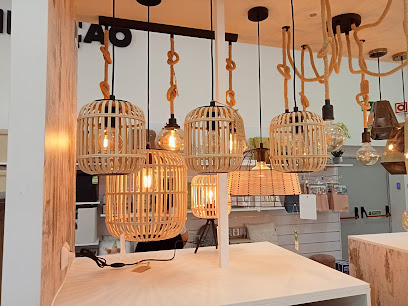
Parfois
Unleash your style at Parfois, the fashion accessories store in Caldas da Rainha, offering clothing, jewelry, shoes, and watches for all tastes.
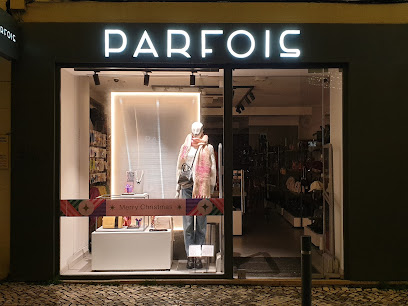
Takitudo | Caldas da Rainha
Explore Takitudo in Caldas da Rainha for unique local treasures and an authentic Portuguese shopping experience.
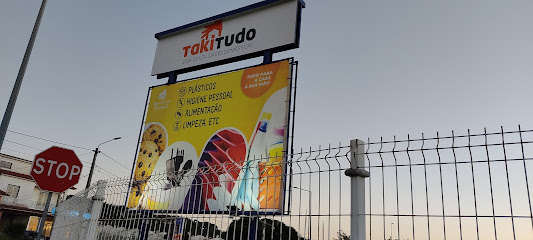
MO | Caldas da Rainha
Explore the vibrant world of fashion at MO in Caldas da Rainha, where style meets comfort for the whole family.
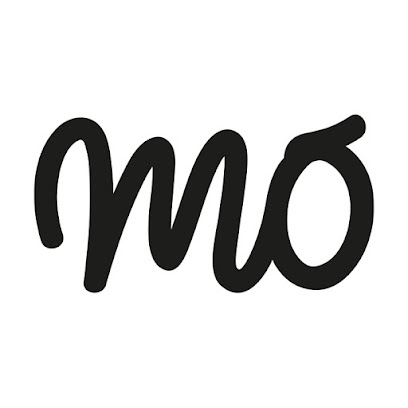
Flying Tiger Copenhagen
Explore the vibrant and unique offerings at Flying Tiger Copenhagen, where creativity meets affordability in a delightful shopping experience.
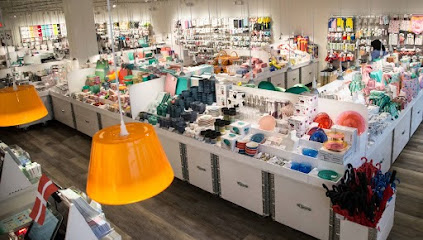
Stradivarius
Discover the latest trends in women's fashion at Stradivarius in Caldas da Rainha, where style meets affordability.
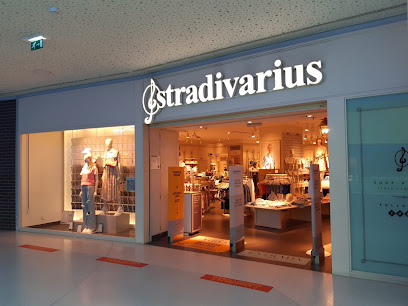
Shop1One | Caldas da Rainha
Discover contemporary fashion at Shop1One in Caldas da Rainha, where style meets local artistry in a delightful shopping experience.
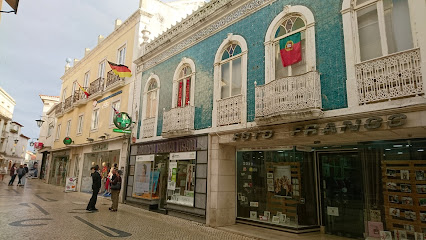
China Shopping
Explore the charm of China Shopping in Caldas da Rainha for an unforgettable shopping experience filled with unique finds and cultural treasures.
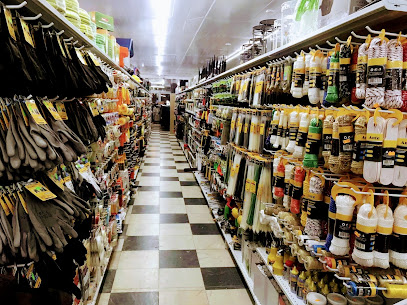
Made For Me
Explore 'Made For Me' in Caldas da Rainha for unique local crafts, gifts, and artisanal wonders that encapsulate Portuguese culture.
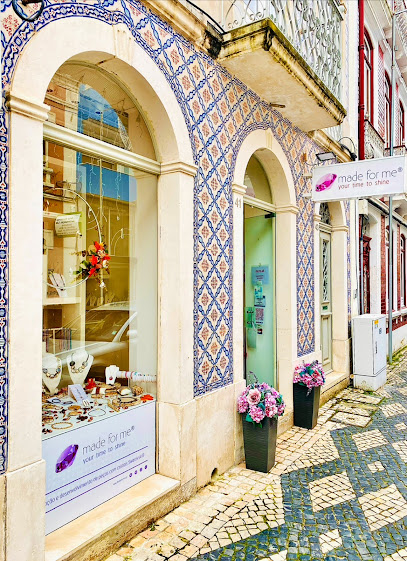
A Loja do Sapo
Explore the artistry of Portuguese ceramics at A Loja do Sapo, a charming pottery store in Caldas da Rainha, perfect for unique souvenirs.
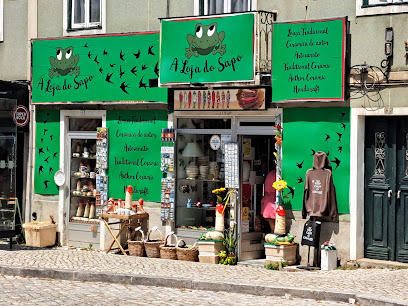
Uneven Authorized Dealer
Discover unique fashion at Uneven Authorized Dealer, a stylish clothing store in Caldas da Rainha, perfect for all your wardrobe needs.
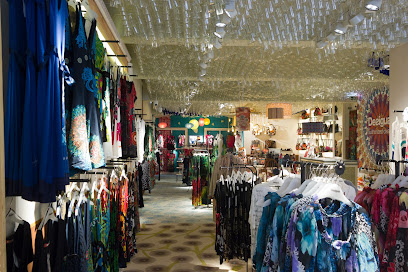
Essential bars & hidden hideouts
FUNKY SushiBar
Discover a vibrant dining experience with exquisite sushi and authentic Japanese flavors at FUNKY SushiBar in Caldas da Rainha.
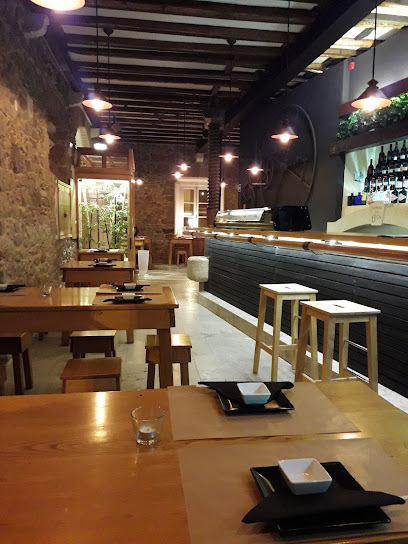
Bar 120 - Gin Bar
Experience the vibrant nightlife at Bar 120, a top gin bar in Caldas da Rainha, featuring exquisite cocktails and a lively atmosphere.
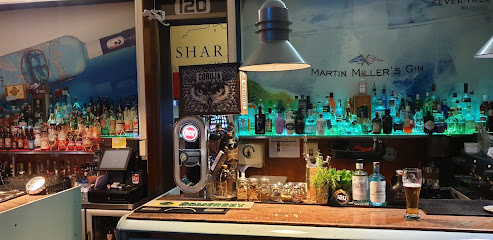
Cafetaria Central Silos
Discover the charm of Cafetaria Central Silos, a cozy bar and café in Caldas da Rainha, perfect for relaxing with friends over coffee or cocktails.
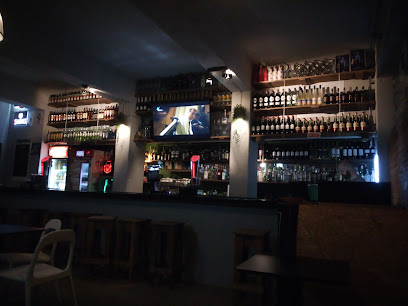
Daiquiri Bar
Experience the vibrant nightlife of Caldas da Rainha at Daiquiri Bar, where refreshing cocktails and a lively atmosphere await.
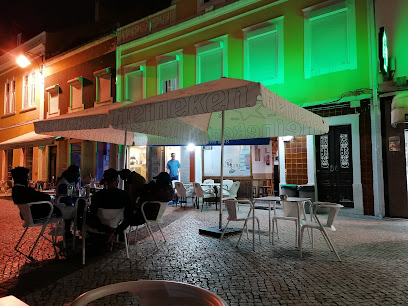
TBAC - The Bread and Coffee
Experience delightful breakfasts and artisanal coffee at TBAC - The Bread and Coffee in Caldas da Rainha, where local flavors meet cozy dining.
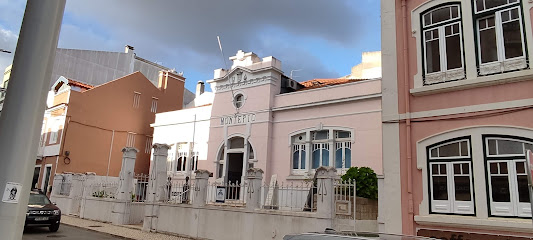
Bar Walkabout
Experience the vibrant nightlife of Caldas da Rainha at Bar Walkabout, where locals and tourists gather for great drinks and good times.
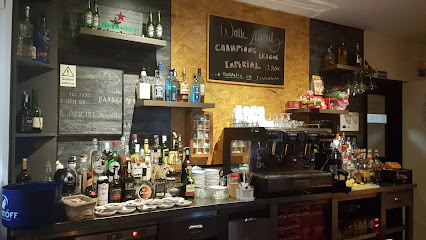
Geo Wine & Supra
Experience the best of Portuguese cuisine and wines at Geo Wine & Supra, a charming restaurant and wine bar in Caldas da Rainha.
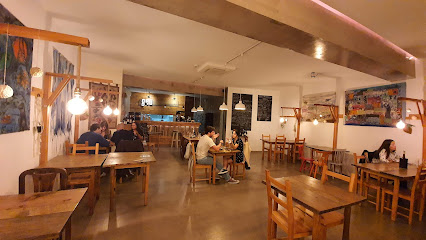
Bar Cidade Nova
Experience the charm of Bar Cidade Nova in Caldas da Rainha, where vibrant social atmosphere meets delightful drinks and snacks.
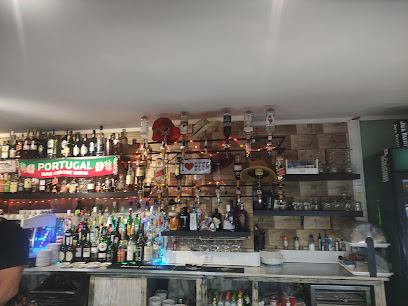
Maria dos Cacos - Restaurante e Bar
Experience the unique blend of traditional and modern Portuguese cuisine at Maria dos Cacos in Caldas da Rainha, a must-visit for food lovers.
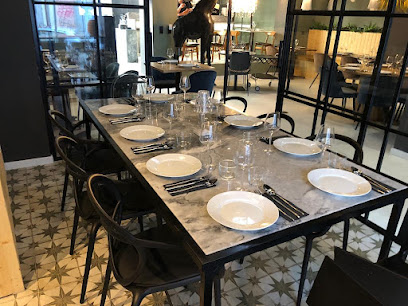
Oliop's!
Experience the vibrant nightlife at Oliop's! in Caldas da Rainha, where friendly service meets a fantastic selection of drinks.
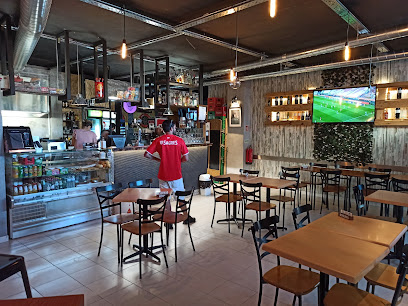
CAIS DO PARQUE . Garden Restaurant . Bar . Caldas da Rainha
Experience the serene beauty and delicious flavors at Cais do Parque, a charming garden restaurant and bar in Caldas da Rainha.
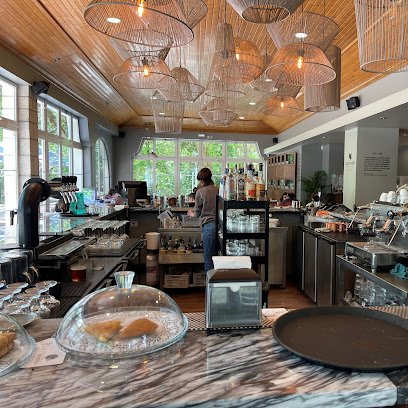
Marula
Discover Marula, a cozy bar and café in Caldas da Rainha, where affordable delights and a vibrant atmosphere await you.
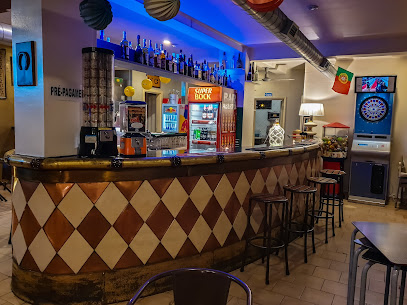
Pateo do Baco
Explore the enchanting Pateo do Baco, a premier wine bar in Caldas da Rainha, offering exquisite wines and a delightful tapas experience.
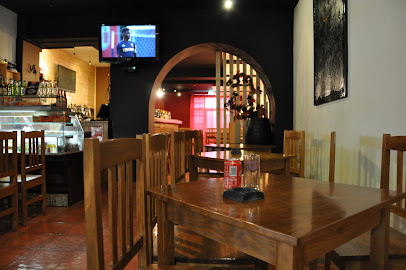
Bar ILHACAFFE
Experience the vibrant nightlife at Bar ILHACAFFE in Caldas da Rainha, where friendly vibes and great drinks await you.
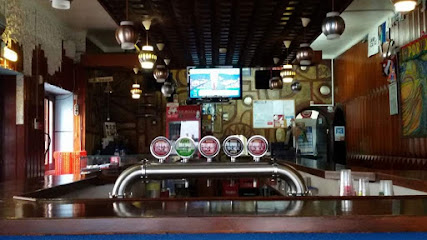
Local Phrases
-
- HelloOlá
[oh-lah] - GoodbyeAdeus
[ah-deh-oos] - YesSim
[seem] - NoNão
[now] - Please/You're welcomePor favor/De nada
[por fah-vohr/deh nah-dah] - Thank youObrigado
[oh-bree-gah-doo] - Excuse me/SorryDesculpe/Desculpa
[deh-skool-peh/deh-skool-pah] - How are you?Como está?
[koh-moh ehs-tah] - Fine. And you?Estou bem. E você?
[ehs-toh-oo beyn/eh voh-seh] - Do you speak English?Fala inglês?
[fah-lah een-glehz] - I don't understandNão entendo
[now ehn-tehn-doo]
- HelloOlá
-
- I'd like to see the menu, pleaseGostaria de ver o menu, por favor
[goh-stah-ree-ah deh vehr oo meh-noo/por fah-vohr] - I don't eat meatNão como carne
[now koh-moh kahr-neh] - Cheers!Saúde!
[sah-oo-deh] - I would like to pay, pleaseGostaria de pagar, por favor
[goh-stah-ree-ah deh pah-gahr/por fah-vohr]
- I'd like to see the menu, pleaseGostaria de ver o menu, por favor
-
- Help!Ajuda!
[ah-zhoo-dah] - Go away!Vai embora!
[vahy ehm-boh-rah] - Call the Police!Chame a polícia!
[shah-meh ah poh-lee-see-ah] - Call a doctor!Chame um médico!
[shah-meh oom meh-dee-koo] - I'm lostEstou perdido
[ehs-toh pehr-dee-doo] - I'm illEstou doente
[ehs-toh doh-ehn-teh]
- Help!Ajuda!
-
- I'd like to buy...Queria comprar...
[keh-ree-ah kohm-prahr] - I'm just lookingEstou só a ver
[ehs-toh soh ah vehr] - How much is it?Quanto custa?
[kwahn-too koo-stah] - That's too expensiveIsso é muito caro
[ee-soh eh moo-ee-toh kah-roo] - Can you lower the price?Pode baixar o preço?
[poh-deh bahy-shahr oo preh-soo]
- I'd like to buy...Queria comprar...
-
- What time is it?Que horas são?
[keh oh-rahs sah-oo] - It's one o'clockÉ uma hora
[eh oo-mah oh-rah] - Half past (10)Meia hora (dez)
[meh-yah oh-rah (dehsh)] - MorningManhã
[mah-nyah] - AfternoonTarde
[tahr-deh] - EveningNoite
[noy-teh] - YesterdayOntem
[ohn-tehn] - TodayHoje
[oh-zheh] - TomorrowAmanhã
[ah-mah-nyah] - 1Um
[oom] - 2Dois
[doysh] - 3Três
[trehsh] - 4Quatro
[kwah-troo] - 5Cinco
[seen-koo] - 6Seis
[saysh] - 7Sete
[seh-teh] - 8Oito
[oy-toh] - 9Nove
[noh-veh] - 10Dez
[dehsh]
- What time is it?Que horas são?
-
- Where's a/the...?Onde está o/a...?
[ohn-deh ehs-tah oh/ah] - What's the address?Qual é a morada?
[kwahl eh ah moh-rah-dah] - Can you show me (on the map)?Pode mostrar-me (no mapa)?
[poh-deh moh-shtr meh/noo mah-pah] - When's the next (bus)?Quando é o próximo (autocarro)?
[kwahn-doo eh oo proh-ksymoo/ow-toh-kah-roo] - A ticket (to ....)Um bilhete (para ....)
[oom beel-yeh-teh/par-ah]
- Where's a/the...?Onde está o/a...?
History of Caldas da Rainha
-
In the late 15th century, Queen Leonor of Portugal, wife of King John II, founded Caldas da Rainha. The queen, renowned for her charitable works, established a thermal hospital here in 1485 after experiencing the healing properties of the local hot springs. This hospital was one of the first of its kind in Europe, making the town a significant health and wellness destination.
-
Queen Leonor's thermal hospital was an architectural marvel, combining Gothic and Manueline styles. It was constructed to provide medical care using the therapeutic hot springs. The hospital's reputation for healing attracted numerous visitors, including nobility and commoners alike, fostering the town's growth and prosperity.
-
During the 19th century, Caldas da Rainha became famous for its pottery and ceramics. Artists like Rafael Bordalo Pinheiro played a pivotal role in this cultural boom. Pinheiro's whimsical and creative ceramic pieces, often depicting animals and caricatures, brought international fame to the town's artisans. Today, the Museu de Cerâmica and the Fábrica de Faianças Artísticas Bordallo Pinheiro preserve and celebrate this rich artistic heritage.
-
In 1883, King Luís I inaugurated the neoclassical market building, known as Praça da Fruta. This daily open-air market became a bustling hub of commerce, where farmers and vendors from the region sold fresh produce, flowers, and handmade goods. The market remains a vibrant centerpiece of local culture and economy, showcasing the town's agricultural abundance and communal spirit.
-
The early 20th century saw a cultural renaissance in Caldas da Rainha, marked by the establishment of the Sociedade de Instrução e Recreio. This cultural society hosted theatrical performances, music concerts, and educational events, fostering a vibrant artistic community. The town's cultural life further flourished with the opening of the Centro Cultural e Congressos, a modern venue for arts and conferences, attracting national and international acts.
-
During World War II, Caldas da Rainha served as a refuge for numerous European exiles and refugees. The town's relative tranquility and therapeutic springs provided a haven for those escaping the turmoil of war. This influx of diverse cultures and talents enriched the local community, leaving a lasting impact on its cultural and social fabric.
-
Today, Caldas da Rainha is a blend of historical charm and modern amenities. The town continues to honor its thermal heritage with spa facilities and wellness centers. Visitors can explore historical landmarks like the Igreja de Nossa Senhora do Pópulo and the Parque D. Carlos I, a lush park named after King Carlos I, featuring ornate gardens and a serene lake. The town's vibrant arts scene, bustling markets, and welcoming atmosphere make it a must-visit destination in Portugal.
Caldas da Rainha Essentials
-
Caldas da Rainha is located in the Oeste region of Portugal, approximately 90 kilometers north of Lisbon. The nearest international airport is Humberto Delgado Airport (Lisbon Airport). From Lisbon, you can take a direct bus or train to Caldas da Rainha. The journey by bus typically takes around 1.5 hours, while the train journey is approximately 1 hour and 40 minutes. Alternatively, you can rent a car and drive, which offers a flexible and scenic route along the A8 highway.
-
Caldas da Rainha is a compact and walkable city, making it easy to explore on foot. For longer distances, local buses and taxis are readily available. The city's bus network connects to nearby towns and attractions. For those who prefer to drive, car rental services are available, providing the freedom to explore the surrounding areas at your own pace. Biking is also a popular option, with several bike rental shops available.
-
The official currency in Portugal is the Euro (EUR). Credit and debit cards are widely accepted in most hotels, restaurants, and shops in Caldas da Rainha. However, it is advisable to carry some cash for smaller establishments, local markets, and public transport. ATMs are plentiful and can be found throughout the city for easy cash withdrawals.
-
Caldas da Rainha is generally a safe destination for tourists, with low crime rates. However, it is always wise to take standard precautions. Avoid walking alone at night in unfamiliar areas and be mindful of your belongings in crowded places, such as markets and public transport. There are no specific high-crime areas targeting tourists, but staying vigilant and aware of your surroundings is always best practice.
-
In case of emergency, dial 112 for immediate assistance. This number connects you to emergency services including police, ambulance, and fire department. The local police station and medical facilities, including the Centro Hospitalar do Oeste, are available in Caldas da Rainha. It is recommended to have travel insurance that covers medical emergencies. For minor health issues, there are several pharmacies in the city where you can purchase over-the-counter medications.
-
Fashion: Do dress comfortably and modestly. While there is no strict dress code, it is respectful to avoid overly revealing clothing when visiting religious sites. Religion: Do respect local customs and traditions. When entering churches, it is customary to dress modestly and speak quietly. Public Transport: Do be respectful and offer your seat to elderly passengers. Don’t eat or drink on public transport. Greetings: Do greet people with a handshake or a friendly 'Olá' (Hello). A kiss on both cheeks is common among friends. Eating & Drinking: Do try local delicacies and accept food offerings graciously. Don’t rush meals; dining is often a leisurely and social affair.
-
To experience Caldas da Rainha like a local, visit the daily fruit and vegetable market at Praça da República, also known as Praça da Fruta, where you can buy fresh produce and regional products. Engage with the locals, who are often friendly and eager to share stories about their city. Don't miss visiting the thermal hospital and the José Malhoa Museum. For a unique experience, take a stroll through the beautiful Parque D. Carlos I, where you can enjoy a relaxing boat ride on the lake.
Trending Landmark in Caldas da Rainha
-
Parque Dom Carlos I
-
Praça da Fruta das Caldas da Rainha
-
Santana Market
-
Mata Dona Leonor
-
Museu da Cerâmica
-
Capela de Santa Ana
-
Museu de José Malhoa
-
Rotunda da Rainha Dona Leonor
-
Chafariz das Cinco Bicas
-
Igreja de Nossa Senhora do Pópulo
-
Hospital Termal Rainha D. Leonor
-
Museu do Ciclismo
-
Centro de Artes
-
Praça de Touros | Caldas da Rainha
-
Arco Da Memoria
Nearby Cities to Caldas da Rainha
-
Things To Do in Tomar
-
Things To Do in Sintra
-
Things To Do in Lisbon
-
Things To Do in Viseu
-
Things To Do in Cascais
-
Things To Do in Setúbal
-
Things To Do in Coimbra
-
Things To Do in Évora
-
Things To Do in Aveiro
-
Things To Do in Badajoz
-
Things To Do in Porto
-
Things To Do in Lamego
-
Things To Do in Guimarães
-
Things To Do in Vila Real
-
Things To Do in Braga










